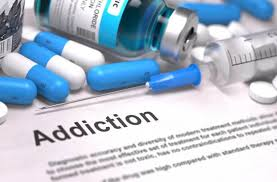Vicodin Addiction Treatment
Immediate
Placement Available at our Top-Rated Treatment Centers.
Please call us at (855) 410-4488. We work
with most major insurance providers and offer flexible payment
options!
Atrium Addiction Care offers a variety of treatment choices and programs for individuals struggling with drug or alcohol addiction. Our inpatient treatment programs are designed for those who have more severe substance use problems and require 24-hour care. We admit both voluntary and involuntary patients.

Vicodin is a prescription painkiller that contains hydrocodone and acetaminophen. Vicodin addiction has become a widespread problem in the United States due to its high potential for abuse, tolerance, overdose and dependence on prescription opioids.
The state of North Carolina is no exception to this issue, with numerous cases of opioid addiction reported every year. Atrium Addiction Care provides comprehensive treatment programs for individuals struggling with alcohol and Vicodin addiction in North Carolina.
These evidence-based treatments aim to help patients achieve long-term recovery by addressing both physical and psychological aspects of addiction.
Through personalized care plans, Atrium Addiction Care offers a range of services including detoxification, individual therapy sessions, group counseling, family support meetings, and aftercare planning.
In this article, we will explore the various treatment options offered by Atrium Addiction Care and how they can help those suffering from Vicodin addiction find their path towards sobriety.
Understanding Addiction As A Complex Disease - opioid addiction treatment
The complexity of addiction is often underestimated. Addiction is not just a simple result of poor choices or lack of willpower; it is a complex disease that affects the brain, behavior, and overall health. It involves changes in brain chemistry, which can alter the way an individual perceives pleasure and reward.
Moreover, addiction may also be impacted by various environmental factors such as social influences, trauma history, and genetic predispositions. Brain chemistry plays a crucial role in the development of addiction. Drugs like Vicodin affect the levels of neurotransmitters in the brain responsible for regulating thoughts and emotions such as dopamine and serotonin.
These drugs stimulate the release of these neurotransmitters leading to feelings of euphoria. Over time however drug use alters this balance resulting in physical dependence on opioids. Trauma has also been identified as a significant factor affecting addiction development. Traumatic experiences can lead individuals to seek out substances to numb their chronic pain, or take similar drugs to escape from distressing memories.
Behavioral therapies have proven beneficial when treating substance use disorders and abuse disorder caused by past traumatic events. Furthermore addressing co-occurring disorders can help clients achieve lasting recovery outcomes. Stigma surrounding addiction remains one of society's biggest challenges even today despite how much we know about its complexities.
This stigma perpetuates negative stereotypes around those with serious substance use and abuse disorders making accessing treatment difficult for many who need it most - further exacerbating their condition over time if left untreated.
Personalized Treatment Plans For Vicodin Addiction
Understanding addiction as a complex disease is crucial in developing effective treatment plans for individuals struggling with various substance use disorders and abuse. In the case of vicodin addiction, personalized treatment plans that address the specific needs and circumstances of each patient are essential to achieving long-term recovery.
One major aspect of treating vicodin addiction involves implementing a tapering protocol, which gradually reduces the dosage and frequency of medication use until it can be safely discontinued. This process helps minimize withdrawal symptoms while also preparing patients for a drug-free lifestyle.
Alongside this approach, cognitive therapy techniques can help individuals identify triggers that lead to drug and alcohol use disorders and develop coping mechanisms to avoid relapse. Additionally, relapse prevention strategies such as mindfulness meditation or contingency management may be incorporated into the treatment plan.
Family involvement plays an important role in facilitating long-term recovery from vicodin addiction. Engaging family members in therapy sessions can provide support and create a more positive environment for those undergoing treatment. Furthermore, incorporating holistic approaches like exercise, nutrition counseling, acupuncture, or yoga may enhance physical and mental health, and well-being alongside psychological therapies.
Overall, Atrium Addiction Care's comprehensive approach aims to treat not only the physical dependence on drugs but also addresses underlying emotional issues that contribute to addictive behaviors. The development of personalized treatment plans is critical in addressing the complexity of vicodin addiction effectively. By utilizing evidence-based practices and involving families throughout the healing process along with adopting holistic approaches, patients can achieve sustainable success beyond their time at Atrium Addiction Care.
Medication-Assisted Treatment For Opioid Dependence

Medication-Assisted Treatment (MAT) is a widely used method for treating opioid dependence. MAT involves the use of medications to for opioid use disorder reduce withdrawal symptoms and cravings while undergoing therapy for addiction treatment.
The benefits of using medication-assisted treatment are that it can improve success rates, give pain relief help manage side effects, and prevent relapse. There are several medications available for MAT including Methadone, Buprenorphine, and Naltrexone. Each medication has different dosages, risks, and benefits associated with its use.
Methadone is a long-acting synthetic opioid agonist that reduces withdrawal symptoms and cravings by activating opioid receptors in the brain without producing euphoria. Buprenorphine is another medication that activates opioid receptors but has less risk of overdose compared to heroin and methadone. Naltrexone works differently than these two medications as it blocks the pleasurable effects of opioids completely.
While there are benefits to using Medication-Assisted Treatment like reduced opioid withdrawal symptoms and improved chances at recovery maintenance, there are also potential risks such as misuse of other substances or abuse of the prescribed medication leading to an extended dependency on them. It’s important to note that this type of treatment does not work alone; it should be accompanied by behavioral therapy to treat drug addiction fully.
Withdrawal symptoms from stopping medications can occur if discontinued abruptly instead of tapering off gradually under medical supervision.
Individual And Group Counseling To Address Underlying Issues
Medication-assisted treatment is one component of a comprehensive approach to treating opioid dependence. Another essential element is individual and group counseling, which can address the underlying emotional and psychological issues that contribute to addiction.
Trauma therapy, behavioral modification, cognitive restructuring, family involvement, and relapse prevention are all key components of effective counseling.
Trauma therapy helps patients deal with past experiences that may have contributed to their addiction to other drugs or made it more difficult for them to recover. Many people who struggle with substance abuse have experienced trauma such as physical or sexual abuse, neglect, or other forms of violence.
By working through these traumatic experiences in therapy, individuals can learn healthier coping mechanisms and reduce their risk of mental illness and relapse.
Behavioral modification focuses on helping patients identify negative thought patterns and behaviors that may be contributing to their addiction. Through counseling sessions and homework assignments such as journaling or goal-setting exercises, individuals can learn new habits and ways of thinking that support the recovery process rather than hindering it.
Cognitive restructuring involves challenging distorted beliefs about oneself or the world around them, which can help break free from self-defeating thoughts and behaviors.
Family involvement is also an important aspect of addiction treatment. Loved ones often suffer alongside those struggling with addiction and can play a crucial role in supporting long-term recovery efforts. Family members may participate in counseling sessions themselves or attend educational workshops designed to teach them how best to support their loved one's recovery journey.
Finally, relapse prevention strategies such as developing healthy coping mechanisms, identifying triggers for drug use, building a strong support network, and having a plan in place for dealing with potential setbacks are critical elements of successful recovery programs.
Aftercare Support For Long-Term Recovery - vicodin addiction treatment center
As individuals strive towards long-term recovery from Vicodin addiction, aftercare support plays a crucial role in their overall success. To ensure continued progress and prevent relapse, it is essential to integrate oneself into the community. This can include participating in group therapy sessions or joining local organizations aimed at promoting sobriety.
Relapse prevention strategies are also integral components of effective aftercare programs. Individuals must learn how to identify triggers that may lead them back down the path of an opioid addiction treatment and develop healthy coping mechanisms to counteract these situations before they escalate.
Additionally, accountability measures such as regular drug testing and routine check-ins with healthcare professionals can help individuals stay on track. Family involvement is another vital aspect of successful aftercare support for those recovering from Vicodin addiction. Loved ones should be educated about what to expect during this process and taught ways to provide support without enabling harmful behaviors.
Finally, holistic wellness practices such as meditation, exercise, and proper nutrition can contribute significantly to an individual's overall well-being while simultaneously aiding in their ongoing recovery journey.
By implementing various forms of aftercare support, individuals struggling with Vicodin addiction can increase their chances of maintaining lasting, long term sobriety thereafter. Community integration, relapse prevention strategies, family involvement, holistic wellness practices, and accountability measures all play critical roles in supporting long-term recovery efforts.
Finding Hope And Healing At Atrium Addiction Care
Aftercare support is crucial in maintaining long-term addiction recovery. It provides a continuum of care that extends beyond the initial treatment phase, enabling individuals to stay on track with their sobriety goals.
However, finding hope and healing after addiction requires more than just aftercare support. At Atrium Addiction Care, we understand that personalizing our approach to each individual's unique needs and circumstances can help them achieve lasting recovery. Our evidence-based treatments are designed to treat not only the physical symptoms of addiction but also address the underlying psychological and emotional issues that contribute to substance abuse.
In addition to personalized care, being part of a supportive community is essential for successful recovery. At Atrium Addiction Care, we foster an environment where individuals feel heard, understood, and supported throughout their journey towards life after addiction.
Our goal is to provide a safe space where patients can build relationships with others who have experienced similar struggles while learning new coping skills and tools for managing cravings or triggers. Ultimately, it is through this sense of connection and community that individuals find hope and healing as they navigate the challenges of addiction recovery.
Conclusion - vicodin addiction treatment in north carolina
Vicodin addiction is a complex disease that requires comprehensive treatment to achieve long-term recovery. At Atrium Addiction Care in North Carolina, we understand the unique medical challenges of opioid dependence and offer personalized treatment plans tailored to each individual's needs.
Our team of experienced professionals combines medication-assisted treatment with counseling and other services, to address underlying issues that contribute to addiction. We believe that every person struggling with addiction deserves hope and healing. That's why our aftercare support programs are designed to provide ongoing support for those who have completed their initial treatment program.
With compassionate care, professional help and evidence-based strategies, we help individuals overcome vicodin addiction and reclaim their lives from the grip of substance abuse. If you or someone you love is struggling with vicodin addiction, contact us today to learn more about how we can help.
